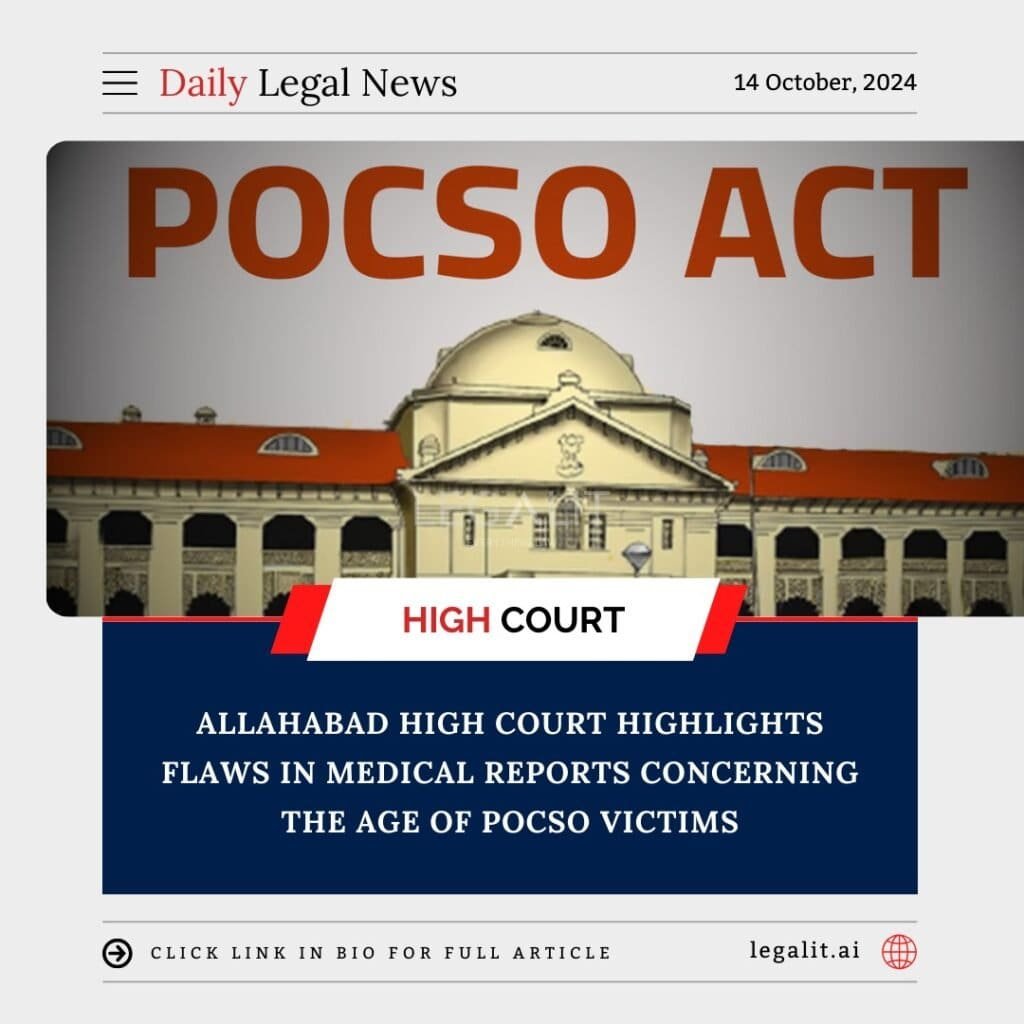
The Allahabad High Court has recently raised concerns regarding the quality and accuracy of medical reports related to the age determination of victims under the Protection of Children from Sexual Offences (POCSO) Act. This issue is critical, as the age of the victim plays a significant role in the prosecution of sexual offenses against minors.
Background of the Case
The court’s remarks came during the hearing of a case where the age of the victim was contested, primarily based on the medical report submitted to the court. The POCSO Act mandates stringent legal measures to protect minors from sexual abuse and exploitation, and accurate age determination is essential for the effective enforcement of these laws. However, inconsistencies in medical assessments can lead to delays in justice and undermine the legal process.
Court’s Ruling and Reasoning
The Allahabad High Court expressed dissatisfaction with the prevailing practices in age assessment and called for a more standardized and reliable methodology. The court highlighted that improper medical reporting could have dire consequences, including the misclassification of victims or even the dismissal of cases due to lack of evidence. The judges emphasized that age determination must be handled with the utmost precision, using established scientific methods to avoid any ambiguity.
Implications of the Judgment
This ruling by the Allahabad High Court has several significant implications. Firstly, it brings attention to the urgent need for reforms in the medical examination process for POCSO cases. Additionally, it calls for better training for medical professionals involved in age assessments to ensure that they adhere to standardized protocols. This can help prevent future discrepancies and bolster the legal framework protecting minors.
Need for Reforms in Medical Reporting
The court’s intervention underscores the necessity for a comprehensive review of the processes involved in age determination under the POCSO Act. There is a growing demand for integrating advanced medical techniques and consistent legal guidelines to ensure that age assessments are both accurate and reliable. This could involve collaboration between medical institutions and legal bodies to establish clear protocols.
Conclusion
The Allahabad High Court’s recent observations regarding the inadequacies in medical reporting for age determination in POCSO cases highlight a critical aspect of the judicial process. Ensuring accurate assessments is vital not only for delivering justice to victims but also for maintaining the integrity of the legal system. The call for reform in this area reflects a broader commitment to safeguarding the rights of children and ensuring that perpetrators of sexual offenses are held accountable in a fair and just manner.